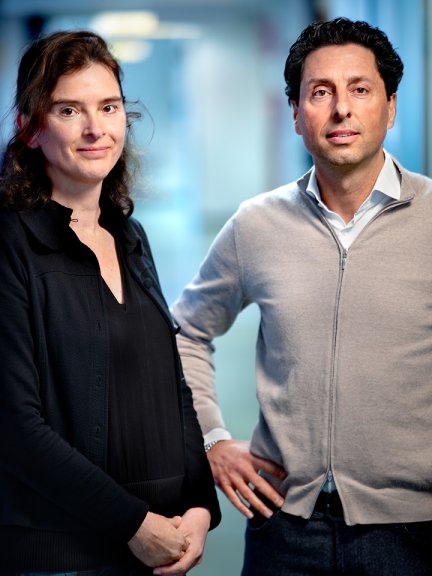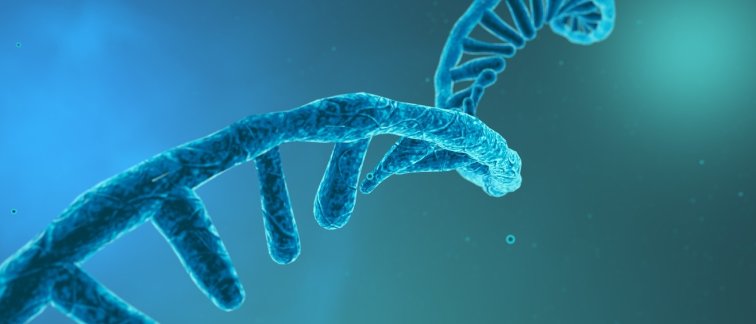Generally applied therapies have improved survival of heart failure patients. However, for genetic cardiomyopathies these treatments often fail because they are treated like patients who have developed heart failure due to very different and more common diseases, such as myocardial infarction.
This ignores the specific underlying pathophysiology of such genetic cardiomyopathies. The lack of effect of this one-size-fits-all approach leaves a large group of often quite young patients with therapy-resistant cardiomyopathies. Some of these have grave prognoses, like cardiomyopathy caused by a LMNA mutation or an RBM20 mutation.
Dr. Yigal Pinto and Dr. Esther Creemers aim to unravel underlying mechanisms of hereditary forms of heart failure. A gene, in which mutations frequently lead to heart failure is the splicing factor RNA-binding motif protein 20 (RBM20).
Working together to unravel underlying mechanisms of hereditary forms of heart failure
RBM20 mutation carriers present with a clinically aggressive form of dilated cardiomyopathy (DCM), associated with young age at diagnosis, increased risk of arrhythmias, and high mortality. In a recent publication in Circulation, the team of Yigal Pinto and Esther Creemers reported on a novel mechanism that underlies the occurrence of cardiac arrhythmias in RBM20 mutation carriers.
Using RBM20 knockout mice, cardiac biopsies of human RBM20 mutation carriers and bioinformatics approaches they have revealed that the loss of RBM20 disturbs calcium handling in cardiomyocytes and leads to more proarrhythmic calcium releases from the sarcoplasmic reticulum. These experimental data have clinical implications, as they suggest that RBM20 mutation carriers may benefit from treatment with calcium blockers to reduce their arrhythmia burden.
In addition to these translational studies, Pinto and Creemers have also collaborated on more fundamental studies of RNA biology in the heart. They not only found that the splicing factor RBM20 is involved in alternative splicing of linear pre-mRNA molecules, but that this protein is also instrumental for the production of circular RNA molecules, generated by a back-splicing reaction of the spliceosome.
In the CVON ARENA-PRIME grant, Yigal Pinto has teamed up with Dr. Leon de Windt (University of Maastricht) and Dr. Eva van Rooij (Hubrecht Laboratory, Utrecht) to contribute to better treatment of heart failure, by bringing RNA therapies closer to clinical application. In this CVON program, allele-specific siRNAs will be explored as a novel therapy for treatment resistant forms of DCM, such as Lamin A/C mutation carriers.

This article is published in July 2019 in the ACS magazine 2019, page 17.


